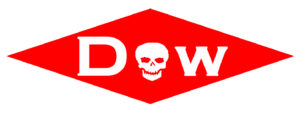The US Environmental Protection Agency proposes to ban the Dow AgroScience pesticide chlorpyrifos. First developed by Dow in the 1960s, chlorpyrifos is known by many trade names including Dursban and Lorsban. Its patent has expired and it is now used as the active ingredient in dozens of pesticide products made by companies ranging from Bayer and BASF to other, smaller chemical producers. It is one of the most widely used organophosphates, which are known to have the potential of causing severe neurotoxic symptoms in humans. Chlorpyrifos has been linked to neurological effects, persistent developmental disorders, and autoimmune disorders.
Officially, the EPA’s proposal would revoke all residue tolerances for chlorpyrifos, which would mean no amount of this insecticide would be legal to apply to any food crop. This leaves open the possibility that the chemical could continue to be used on ornamental plants or on golf course turf.
Meanwhile, the European Food Safety Authority has, somewhat bizarrely, just sanctioned a re-authorisation of glyphosate, a ‘probable carcinogen’ according to the World Health Organisation. The European authorization was based on what Greenpeace, and others, have described as unpublished industry studies:
“The WHO’s International Agency for Research on Cancer (IARC) study found glyphosate a ‘probable carcinogen’. It was carried out by 17 world-class independent experts looking at multiple published peer-reviewed studies over a year.’
“The EFSA peer review of the German Federal Institute for Risk Assessment (BfR) found ‘there is no carcinogenic risk related to the intended herbicidal uses’. It was largely based on unpublished regulatory studies provided by the chemical companies producing glyphosate.”
Letter to European Commissioner for Health and Food Safety,’ Glyphosate: Need for a robust and credible scientific assessment of carcinogenicity’, from Greenpeace & others: CLICK
Glyphosate probable carcinogen: CLICK
In a further twist, back in September a United States appeals court ruled that federal regulators erred in allowing another Dow AgroSciences pesticide onto the market. The court cancelled the approval which represents a major victory for environmentalist organizations that filed the lawsuit. The Dow pesticide goes by the name of sulfoxaflor and is from the neonicotinoid subclass which are claimed to be responsible for the rapid decline in bee colonies witnessed in recent years.
But the EU approved sulfoxaflor just this summer with Greenpeace statuing that: “approval for use in the EU was made despite the fact that EFSA concluded in its risk assessment that the available data were insufficient to rule out a high risk to honey bees.” Until now, the EU has been ahead of the US when it comes to protecting the bees – it was the first to put in place a two year ban on neonics- and, on that basis, this approval must be seen as particularly disappointing.



